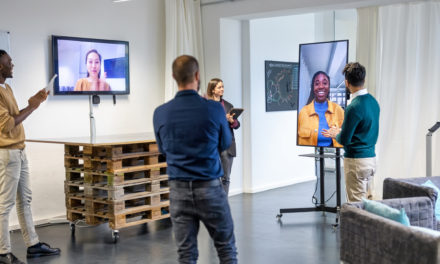
By now, you have most likely heard of the Maryland lawmaker from Harford County, Del. Mary Ann Lisanti (D) and the racial slur she used to refer to the residents of Prince George’s County, MD. If you haven’t, the situation could be boiled down to the following:
- White individual says inappropriate statement/commits inappropriate action
- Public outrage ensues with potential call for loss of job/position
- “Heart-felt” apology to community/people impacted by harmful statement/act
Does this narrative sound familiar? It certainly does to me, and at this point it feels as though this deplorable type of action has become a reoccurring headline rather than shocking news. Whether it be an elected representative of a state, a high-end brand, or otherwise, these insensitive situations in the media are beginning to resemble a status quo of sorts.
Whether it be an elected representative of a state, a high-end brand, or otherwise, these insensitive situations in the media are beginning to resemble a status quo of sorts. Click To TweetIn this particular case, Lisanti was reported to have told a fellow lawmaker that when he helped a candidate in Prince George’s County, he was knocking on doors in a “n— — district”. Individual level prejudices and interpersonal interactions like these precede many of the systemic, racist norms that negatively impact people of color every day. Lisanti eventually apologized for the conversation that at first, she did not seem to recall. From my perspective, the comfortability to freely use derogatory language in such a casual manner remains baffling. Lisanti is yet another example of an individual with positional power who either, does not understand the impact of her words, or if she is aware, does not believe it should hold value or be indicative of her character.
When asked whether she has ever used the slur, Lisanti responded, “I’m sure I have…I’m sure everyone has used it. I’ve used the f-word. I used the Lord’s name in vain.” This statement drove home two points related to the gross desensitization this country has embodied pertaining to racial prejudice and inequity. The first was her level of certainty around previously using the n-word. This tells me that it is in fact in her vocabulary. Clearly, the negative history and impact of this word is not enough for her to refrain from using it. Secondly, she chose to compare it to the use of profanity and the religious use of the “Lord’s name.” Utilizing these comparisons serve as a minimization tactic, as if to say “I use these words as well, and they are very similar. Certainly, this word (the n-word) is not as taboo as many would suggest.” Again, she did not address the harm associated with her language.
You may recall in 2015, the Sigma Alpha Epsilon fraternity had its University of Oklahoma chapter closed after said fraternity was caught on video singing lyrics to a racist chant. Perhaps you remember the more recent occurrences of Gov. Ralph Northman and Attorney General Mark Herring admitting to having used blackface decades ago. There have been too many instances of explicit racism in the media between these times to even mention.
It is not a single act or instance that leads these individuals to being in a situation where they are apologizing for a racist "mistake”–it is a culmination of their life experiences and lack of cultural understanding that… Click To TweetMy question to us all: when will we take a deeper look at the systems at play that allow for individuals to view the world from this flawed and harmful lens? It is not a single act or instance that leads these individuals to being in a situation where they are apologizing for a racist “mistake”–it is a culmination of their life experiences and lack of cultural understanding that allows for these blunders. This includes cultural norms and messaging in the media, familial values, formal education, segregated living communities, and many more influences. These systems affect us all and can be particularly harmful to historically marginalized individuals and communities. Let’s not continue to enable systems by failing to name them.
Let’s not continue to enable systems by failing to name them. Click To Tweet

















